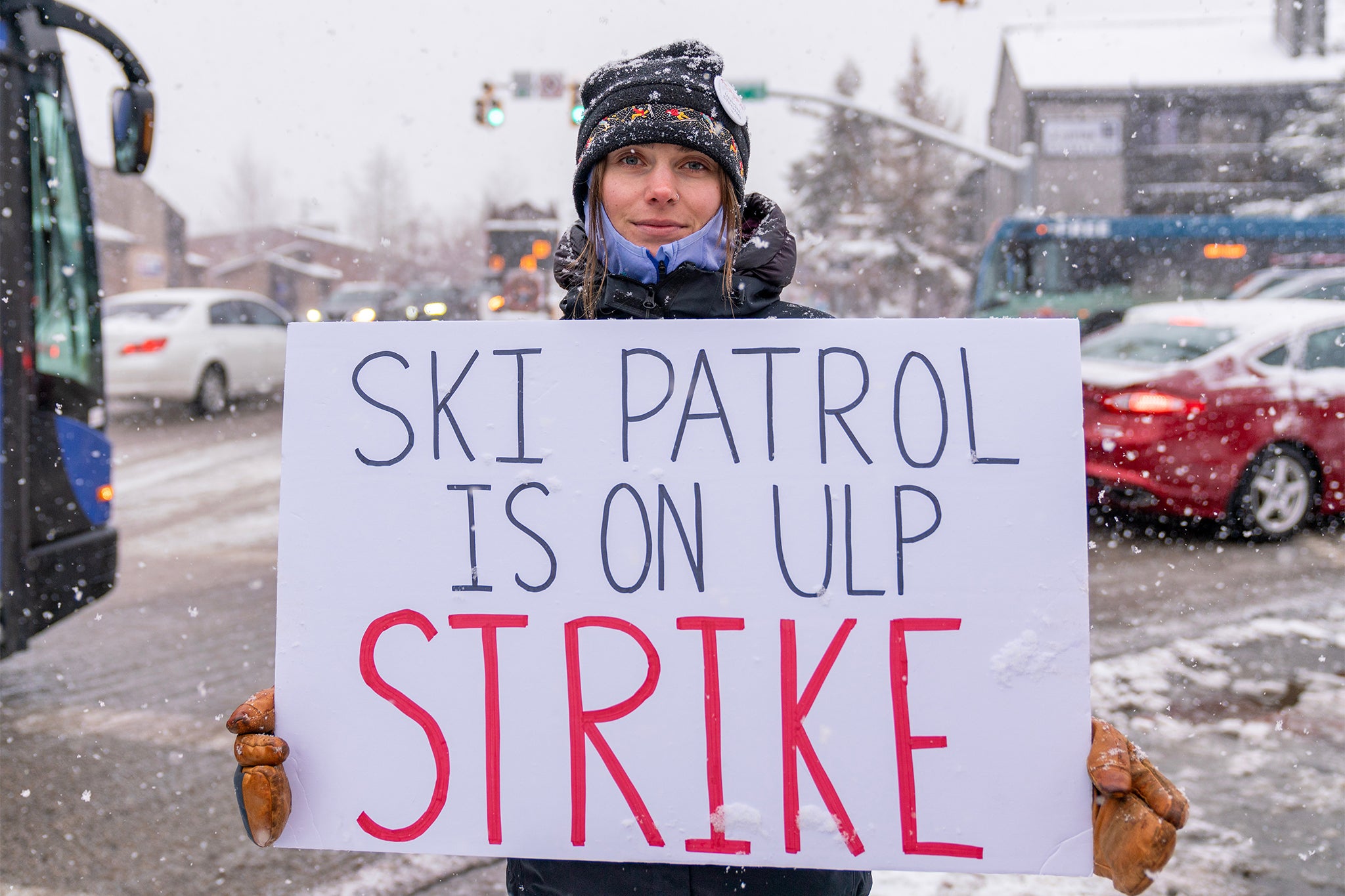
A third week of strikes by mountain patrol staff at a US ski resort has created a “disaster” of three-hour lift lines for “ripped-off” holidaymakers.
Skiers on luxury holidays have been left out in the cold at Utah’s Park City Mountain Resort as the resort operates with only 26 out of 41 lifts taking riders up the slopes.
Over 200 ski patrollers at Park City Mountain have been on strike against resort owner Vail Resorts since 27 December in a wage dispute.
Park City, the largest ski area in the US, is at the peak of its busy winter ski season.
Ski patrollers trained in first aid rescue and avalanche mitigation techniques are essential for maintaining safety as crowds flock to the slopes.
According to an Instagram post by the Park City Professional Ski Patrollers Association, workers seek a $2 raise in their hourly base salary, increasing their pay from $21 to $23.
An annual cost of living adjustment, fair pay for senior patrol staff and better healthcare benefits are also among union demands.

The union and Vail Resorts have already agreed to 24 of 27 contract items aside from wages and benefits.
As of Tuesday (7 January), although snowfall has created ideal conditions for snowsports, amid the ongoing strike action only 104 of 350 trails had been open to visitors – some who will have spent over $288 (£230) on a single-day lift ticket.
Disappointed skiers took to social media to share their frustration at the snaking ski lift queues with some warning others to “Stay away from Park City. Mountain is a disaster!”
Peter Nystrom from Minnesota spent $20,000 (£16,000) on a family ski holiday and plans to make a formal complaint for reimbursement from Vail Resorts.
He said on X/Twitter on 31 December: “Longest lines ever. No excuse. Operational and managerial fail during the busiest week of the year. $20,000 vacay with 2-3 hour lines for lifts. At least discount those who bought lift tickets while the strike was occurring!”
In another video shared on X, a crowd of skiers waiting to get on the resort’s King Con lift can be heard chanting “pay your employees”.
“The combination of a weak snow year with the ski patrol strike is leaving every guest on the mountain pissed off and feeling ripped off,” wrote another user.
Vail has brought in ski patrollers from its other 41 resorts to keep the mountain open.
Deirdra Walsh, chief operating officer at Vail Resorts has apologised to skiers and riders for the “frustrating” holiday period.
She said in a statement on Monday: “What we are doing is opening the terrain we can safely open with the people we have each day during the strike. We strive for transparency on operations. And the truth is that during this unprecedented time, each day is dynamic, and we are doing the best we can to keep guests informed.”
“People have asked, ‘Can’t you just pay patrol $2/hour more?’ It’s never been about 2 dollars. There’s a lot of misinformation surrounding these negotiations. First, please know; we care deeply about the work of our ski patrol; we have invested a lot in them and will continue to. Second, they are asking for much more than $2/ hour. In fact, on the day they went on strike, their demands equalled $7/hour more,” she added.
Park City Mayor Nann Worel also called for an end to the negotiations: “The Park City Council and I recognize that resort communities face significant livability challenges – and it is the workforce that all too often shoulders the weight of today’s economic pressures. Supporting a professional workforce is essential to the health, safety, and vitality of our town.”
She added: “I urgently call on Vail Resorts to take immediate action to conclude negotiations and end the uncertainty.
“Park City Mountain is a cornerstone of Park City’s community well-being, and it is Vail Resorts’ responsibility as an essential employer to resolve this conflict without further delay.”
Mediation between Park City Mountain and the patrol union continues today, with Park City Mountain “committed to reaching an agreement that demonstrates our respect for them”.
For more travel news and advice, listen to Simon Calder’s podcast







